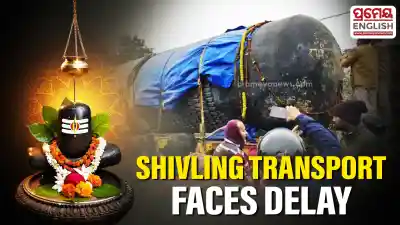

New Delhi, August 19: With the death of elephants on railway tracks is on the rise, the Wild Life Institute of India(WII) is working out on eco-friendly linear infrastrucutes to curb the bruatal death of the pachyderms either due to train collision or for electrocution from the high-voltage tractions.
The Union Minister for State for Environment & Forest Kirti Vardhan Singh while presenting a database on death of jumbos to train accidents, in the Lok Sabha on Monday it was revealed that at least 16 elephants die in a year due to rail accidents.
At least 79 elephants have died in train collisions across the country in the last five years i.e during 2020-25, the Environment Ministry informed the Parliament.
Citing some recent incidents Singh said that three elephants, including a mother and her calf, were killed on July 18 this year after being hit by a speeding express train on the Kharagpur-Tatanagar section in West Bengal's Paschim Midnapore district.
Underlining the measures for curbing elephant deaths due to similar railway mishaps, the minister said several measures have been taken jointly by the Environment Ministry and the Railways as pilot projects.
The latest measures include imposing speed restrictions in elephant habitats, seismic sensor-based detection of elephants near tracks and construction of underpasses, ramps and solar fencing at vulnerable cross-line points.
The Wildlife Institute of India, in consultation with the ministry and other stakeholders, has also issued guidelines titled 'Eco-friendly Measures to Mitigate Impacts of Linear Infrastructure' to help agencies design railways and other projects which will not be fatal for the jumbos.
Singh added that frequent capacity-building workshops are conducted for railway officials at the Wildlife Institute of India to raise awareness on elephant conservation and protection especially on preventing death on railway tracks.
A detailed report titled 'Suggested Measures to Mitigate Elephant & Other Wildlife Train Collisions on Vulnerable Railway Stretches in India' has also been prepared after surveys across 127 railway stretches along 3,452 km.
Of these, 77 stretches spanning 1,965 km in 14 states have been prioritised for mitigation, with site-specific interventions suggested, the Union Minister added.